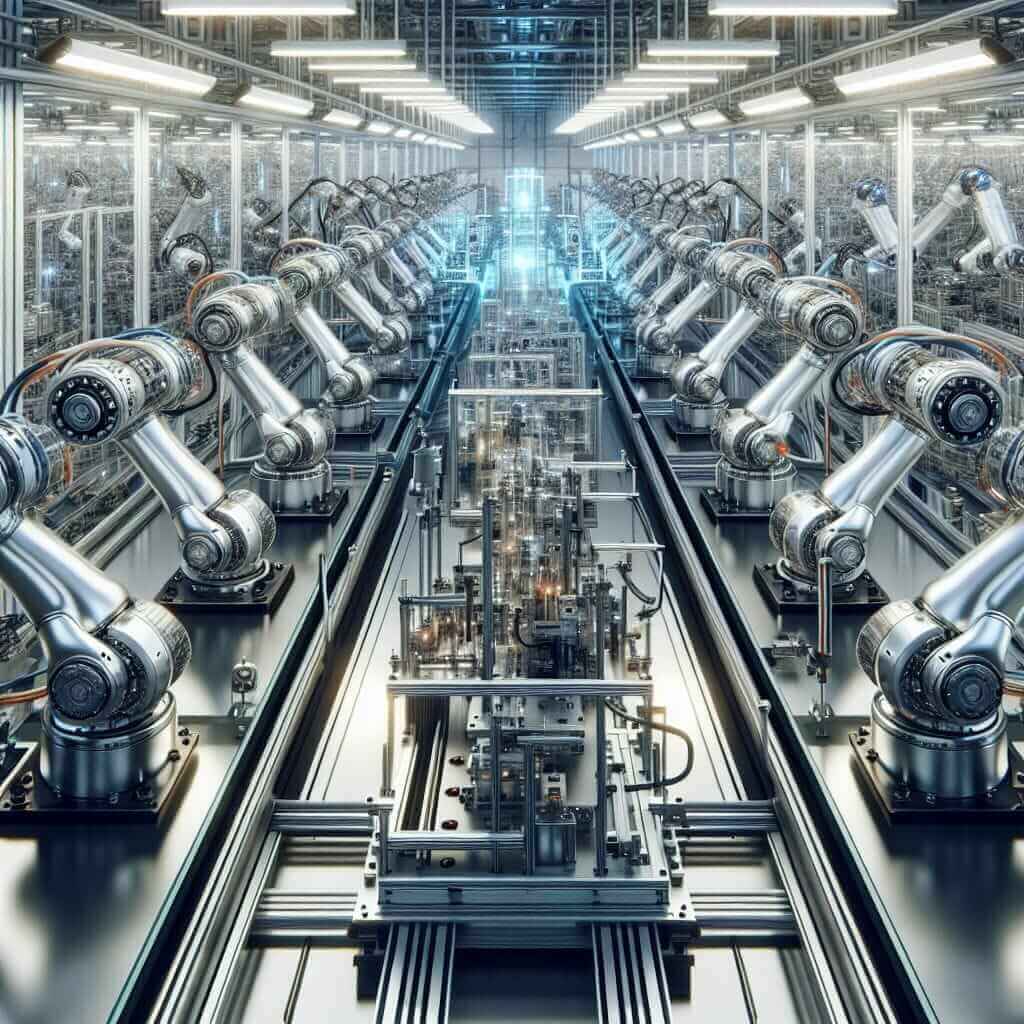The IELTS Reading section is designed to assess a candidate’s ability to understand and process a wide range of reading texts. One commonly discussed topic is the impact of automation on job markets. Given the relevance and frequency of this subject in various forms of media and academic discourse, it is a prime candidate for appearing in the IELTS Reading test. In this article, we will explore the effects of automation on job markets through a comprehensive reading practice exercise, complete with questions and answers to help you prepare for the IELTS Reading exam.
Reading Passage: The Effects of Automation on Job Markets
(Reading Passage adapted to fit the format and complexity typically found in the IELTS Reading section.)
The Rise of Automation
Automation has become a significant factor influencing global economies and job markets. The advancements in artificial intelligence (AI) and robotics have enabled machines to perform tasks that were traditionally carried out by humans. From manufacturing to service industries, automation is reshaping the way businesses operate.
Economic Impacts
The economic implications of automation are vast. On one hand, it can lead to increased productivity, efficiency, and lower operational costs. For example, automated assembly lines in factories can produce goods at a faster rate compared to human labor. On the other hand, the adoption of automation can result in job displacement, where workers are replaced by machines. This phenomenon is particularly evident in sectors such as manufacturing, where repetitive tasks are common.

Job Market Shifts
The job market is undergoing a transformation due to automation. While some jobs are being eliminated, new opportunities are emerging. Professions that require human creativity, emotional intelligence, and complex problem-solving are less likely to be automated. For instance, roles in healthcare, education, and technology often require a human touch that machines cannot replicate. However, workers in these fields may still need to adapt by acquiring new skills relevant to the digital age.
Social Consequences
The social implications of automation are also profound. Communities dependent on industries that are heavily automated may experience economic decline and increased unemployment rates. Governments and policymakers are challenged to create strategies that mitigate these adverse effects. This could include investing in education and vocational training to help workers transition into new roles.
Ethical Considerations
Ethical concerns arise with the proliferation of automation. Issues related to fairness, inequality, and the ethical treatment of workers must be addressed. For instance, the distribution of wealth generated by automation benefits should be fair and inclusive. Without proper regulations and policies, the gap between the rich and poor may widen.
Questions
Section 1: Multiple Choice
-
What is one positive economic impact of automation mentioned in the passage?
- a) Increased unemployment
- b) Higher operational costs
- c) Increased productivity
- d) Decreased need for education
-
Which sector is highlighted as experiencing significant job displacement due to automation?
- a) Healthcare
- b) Manufacturing
- c) Education
- d) Technology
Section 2: True/False/Not Given
-
Roles in healthcare are less likely to be automated.
- a) True
- b) False
- c) Not Given
-
Governments are not taking any action to address the social consequences of automation.
- a) True
- b) False
- c) Not Given
Section 3: Matching Information
-
Match the following statements (a-c) with the corresponding paragraph (i-iii):
- a) Economic decline due to automation
- b) The rise of new job opportunities
- c) Ethical concerns of automation
i. Paragraph 3
ii. Paragraph 4
iii. Paragraph 5
Answers and Explanations
- c) Increased productivity
- Explanation: The passage mentions that automation can lead to increased productivity, which is a positive outcome for economies.
- b) Manufacturing
- Explanation: The manufacturing sector is specifically noted as experiencing significant job displacement due to automation.
- a) True
- Explanation: The passage states that roles in healthcare are less likely to be automated due to the need for human interaction.
- b) False
- Explanation: The passage discusses the actions of governments and policymakers in addressing the social consequences of automation.
- a-ii, b-i, c-iii
- Explanation:
- a) Economic decline due to automation: Paragraph 4
- b) The rise of new job opportunities: Paragraph 3
- c) Ethical concerns of automation: Paragraph 5
- Explanation:
Common Mistakes to Avoid
- Misunderstanding the economic implications: Ensure you clearly distinguish between positive and negative impacts.
- Matching information errors: Carefully read each paragraph to match statements correctly.
- Ignoring context: Pay attention to the overall context of each paragraph for accurate answers.
Vocabulary
- Automation (noun) /ˌɔːtəˈmeɪʃən/: The use of largely automatic equipment in a system of operation.
- Artificial Intelligence (noun) /ˌɑːtɪˈfɪʃl ɪnˈtɛlɪdʒəns/: The theory and development of computer systems able to perform tasks that normally require human intelligence.
- Job displacement (noun) /dɪsˈpleɪsmənt/: The situation in which employees lose their jobs because their roles have been taken over by machines or technology.
- Vocational training (noun) /vəʊˈkeɪʃənəl ˈtreɪnɪŋ/: Education and training that provides skills for specific trades or professions.
Grammar
- Passive Voice: “Automation is reshaping the way businesses operate.”
- Structure: [Subject + be + past participle]
- Example: The essay was written by the student.
- Present Continuous for Trends: “The job market is undergoing a transformation.”
- Structure: [Subject + be + verb-ing]
- Example: My friend is studying for the IELTS exam.
Tips for High Reading Scores in IELTS
- Practice Regularly: Consistent practice with a variety of texts improves comprehension skills.
- Expand Vocabulary: Build a robust vocabulary to handle complex texts.
- Time Management: Practice under timed conditions to improve speed and accuracy.
- Analyze Mistakes: Review incorrect answers to understand and avoid mistakes in the future.
By focusing on these areas, you can enhance your reading skills and achieve a higher score in the IELTS Reading section.